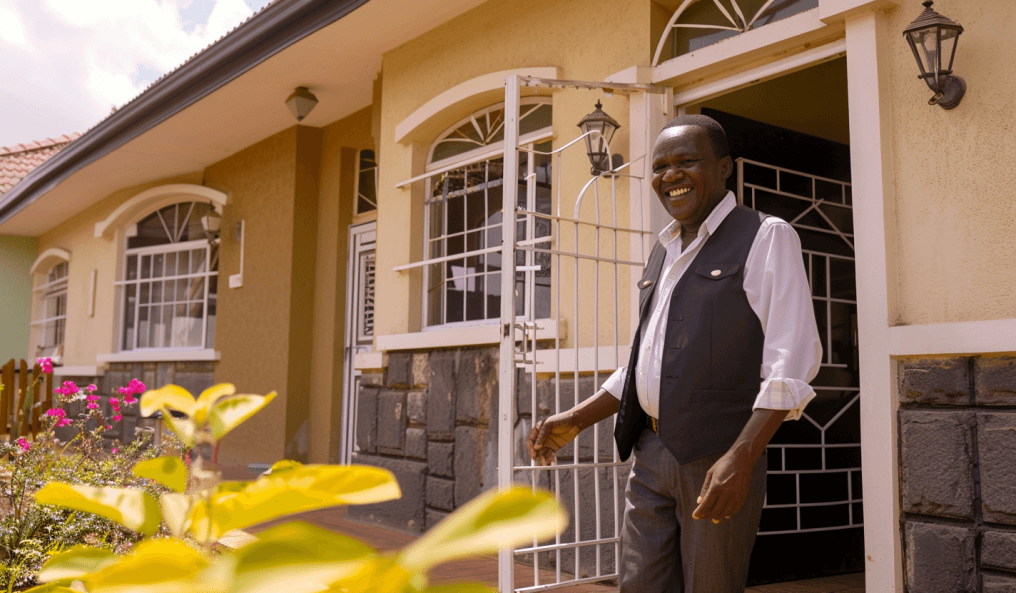In 2025, a growing number of Kenyan women are courageously claiming their rightful place as landowners, marking significant strides in a landscape that has historically been dominated by deeply entrenched patriarchal norms and discriminatory customary laws. While the Constitution of Kenya (2010) explicitly guarantees equal rights to own property for all citizens, irrespective of gender, the journey towards truly equitable land ownership for women remains a complex and often arduous one, fraught with persistent challenges. This comprehensive article sheds light on the progressive legal rights women now possess, the ongoing and systemic challenges they continue to face, and the remarkable progress being made through dedicated efforts to empower women in the critical domain of land ownership across Kenya.
Constitutional and Legal Framework: A Strong Foundation for Equality
The Constitution of Kenya (2010) stands as a monumental cornerstone for women's land rights, representing a profound shift from previous legal regimes. Article 40 emphatically provides for the protection of property rights for all persons, without any gender-based discrimination. Furthermore, Article 60(f) specifically mandates equitable access to land and security of land rights, explicitly aiming to eliminate all forms of gender discrimination in land matters. Most significantly, Article 68 was meticulously designed to secure the rights of married women and widows to matrimonial property, thereby preventing the egregious situations where women are dispossessed of their homes and livelihoods upon divorce or the tragic death of their spouses. Complementary legislation, such as the Land Act (2012) and the Land Registration Act (2012), were subsequently enacted to solidify these constitutional provisions. The Land Registration Act, for instance, boldly introduced provisions for joint spousal registration of land and mandated spousal consent in all land dealings. While some of these provisions have faced subsequent amendments and even reversals in recent years, this legislative flux underscores the ongoing and often fierce legal and social tug-of-war for women's land rights.
Persistent and Systemic Challenges for Women in Land Ownership
Despite the existence of this progressive legal framework, several deep-rooted and systemic challenges continue to impede women's equitable access to and effective control over land in Kenya:
- Entrenched Customary Laws and Patriarchal Norms: Traditional practices in numerous Kenyan communities continue to prioritize male inheritance and ownership of land, with women being largely, if not entirely, excluded. Daughters are often presumed to leave the family home upon marriage, and property is predominantly distributed exclusively to sons. Widows, tragically, frequently face severe disinheritance or aggressive property grabbing by in-laws, leaving them destitute.
- Pervasive Low Awareness of Rights: A significant number of women, particularly those residing in rural and marginalized areas, remain largely unaware of their fundamental constitutional and legal rights pertaining to land ownership. This critical lack of knowledge renders them highly vulnerable to exploitation, manipulation, and ultimately prevents them from effectively asserting their legitimate claims.
- Limited Access to Financial Resources: Women often have severely limited access to independent financial resources, including credit and savings. This economic disadvantage makes it exceptionally difficult for them to purchase land outright or to undertake the often complex and costly necessary legal processes for land registration, transfer, and subsequent development.
- Bureaucracy, Corruption, and Administrative Hurdles: Navigating the labyrinthine processes of the land registry and obtaining official title deeds can be an exceedingly complex, time-consuming, and frustrating endeavor. This complexity is frequently compounded by bureaucratic inefficiencies and instances of corruption, which disproportionately affect women who may possess less influence, fewer established networks, or limited financial means to navigate these obstacles.
- Insufficient Representation in Land Governance Institutions: Women are consistently underrepresented in crucial land governance institutions, decision-making bodies, and community land committees. This lack of female voices and perspectives within these structures further perpetuates discriminatory practices and gender-insensitive land policies.
- Risk of Gender-Based Violence: Alarmingly, in some unfortunate cases, women who courageously attempt to claim or assert their legitimate land rights face severe intimidation, harassment, social ostracization, or even physical violence from resentful family members, community elders, or other vested interests.
- Legislative Gaps and Ambiguous Amendments: While a legal framework exists, inconsistencies within laws or subsequent amendments can inadvertently create loopholes or weaken critical protections for women’s land rights, necessitating continuous legal advocacy, robust policy review, and strategic litigation.
Commendable Progress and Sustained Efforts in 2025
Despite the formidable challenges, 2025 marks a period of increasing momentum and tangible progress towards empowering women in land ownership across Kenya:
- Intensified Advocacy and Targeted Awareness Campaigns: A multitude of dedicated civil society organizations, non-governmental organizations (NGOs), and passionate women's rights advocates are actively conducting widespread training and awareness campaigns across various counties and at the grassroots community level. These vital initiatives aim to inform women about their land rights, directly challenge and dismantle discriminatory customary practices, and clearly explain the often daunting legal processes involved in land acquisition and ownership.
- Government Initiatives and Digital Transformation: The Ministry of Lands continues its relentless push for the full digitization of land records through the revolutionary Ardhisasa platform. This monumental undertaking is designed to usher in unprecedented transparency and efficiency in land transactions. This increased digital accessibility is anticipated to significantly reduce opportunities for fraud and streamline the land registration process, making it considerably more accessible and user-friendly for all citizens, crucially including women.
- Enhanced Legal Aid and Comprehensive Support: Concerted efforts are being made to dramatically improve women's access to affordable and accessible legal support. Numerous organizations are providing invaluable pro bono legal services and establishing legal clinics specifically designed to assist women seeking recourse from the courts to enforce their often-violated property rights.
- Strategic Financial Inclusion Programs: A growing number of targeted initiatives aimed at significantly improving women's access to financial resources, including accessible loans, micro-grants, and structured savings schemes, are demonstrably enabling more women to confidently purchase land and make strategic investments in property, thereby fostering economic independence.
- The Empowering Role of Women's Groups and SACCOs: Women's collective groups and vibrant Savings and Credit Co-operative Societies (SACCOs) are playing an increasingly crucial role. They facilitate the pooling of financial resources, simplify collective land purchases, and provide indispensable mutual support and guidance for women navigating the complexities of the real estate market.
- Active Role of the National Gender and Equality Commission (NGEC): The NGEC continues its vital mandate to monitor, advocate for, and actively promote the rigorous implementation of gender equality provisions within all land policies, laws, and administrative practices, holding duty-bearers accountable.
The Profound and Far-Reaching Impact of Women's Land Ownership
Empowering women with secure and legally recognized land rights has profound and far-reaching positive impacts that extend well beyond mere individual ownership. It demonstrably improves women's economic status, significantly enhancing their capacity to participate meaningfully in economic activities and make substantial contributions to both household well-being and national development. Secure land tenure directly leads to increased agricultural productivity, as women are more likely to invest in land they own, thereby improving food security for their families and communities. It also provides better access to formal credit and financial services, using land as collateral. Crucially, land ownership significantly empowers women to make independent decisions regarding their livelihoods and households, thereby reducing their vulnerability to exploitation and strengthening their overall socio-economic standing and well-being within their communities. It is a catalyst for broader gender equality and social justice.
Conclusion: A Continuous Journey Towards Comprehensive Equality
The journey towards full gender equality in land ownership in Kenya is undoubtedly a continuous one, requiring sustained, collaborative, and dedicated effort from all stakeholders – government, civil society, communities, and individuals. While progressive policy changes and robust legal frameworks now provide a strong and necessary foundation, effectively addressing deeply ingrained social norms, ensuring consistent and fair implementation, and rigorously enforcing existing laws remain absolutely critical. In 2025, the increased awareness, heightened advocacy, and coordinated collaborative efforts are collectively paving the way for more and more Kenyan women to confidently claim their rightful place as landowners. This progress is not merely about fulfilling a legal right; it is fundamentally about building a more equitable, economically prosperous, socially just, and truly inclusive society for all Kenyans, where land serves as a tool for empowerment and sustainable development for every citizen, irrespective of gender. The momentum is undeniable, and the path forward is clearer, but sustained vigilance and action remain paramount.




